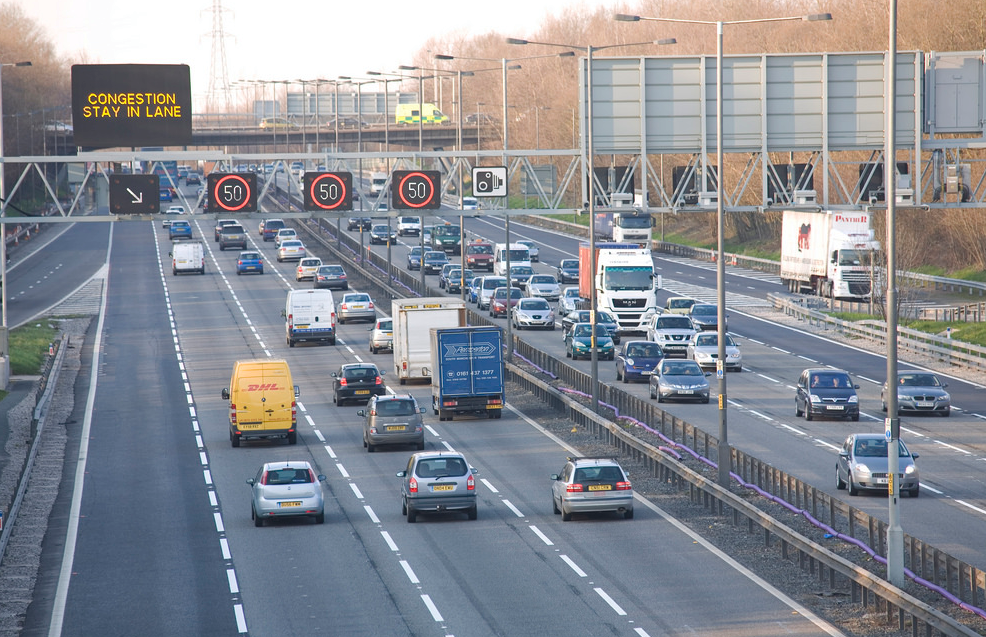Top 10 Tips for New Car Drivers
At one point in life for everyone comes the time to take the much-feared driving test. Passing it is a relief and comes with a newly acquired sense of freedom of no longer depending on friends and family for lifts. Being a new driver, however, also comes with the newly gained significant responsibility of being in charge of a car. That is why we have put together a list of 10 top tips for new car drivers; to help you navigate what is worth remembering when you’re on the road on your own after passing your test.
1. Use P Plates
If you’ve just passed your test and are a little apprehensive about tackling the road on your own, without the support of your driving instructor, make sure to use your P plates, as putting them on your car will let other road users know that you are not an experienced driver, and they will be more patient and understanding with you.
2. Try Different Types of Roads
You may have tried different roads whilst in the car with your instructor practising the test routes. However, to gain confidence, it’s worth being able to drive on your own on a multitude of roads, from steep country roads, city driving, or even the Motorway at night. Use some time once you’ve passed your test to experience different roads and build your confidence.

3. Get to Know Your Car
Once you pass your driving test, you will no longer be driving your instructor’s car which has grown to be familiar over time. Whether you’ll be driving your own car or a family car, you must spend some time reading through the driver’s manual and figuring out where everything is (i.e. window wipers, full beams, dipped headlights, inc.) before getting on the road.
4. Don't Speed
It’s crucial to observe the rules of the road, avoid speeding, and keep the Highway Code in mind whilst driving (especially with the latest rule changes). This will save you from accidents, hefty fines, speed awareness courses, and help your vehicle’s fuel efficiency.
5. Observe the 2-second Rule
The 2-second rule is there to keep you safe as leaving enough space (2 seconds) from the car in front of you will give you enough time to react if needed, since there could be steep bends, dips, a change in the road surface, or even a change in the speed limit, so looking well ahead in addition to observing the 2-second rule will set you up for success.
6. Plan a Motorway Journey
Unless you’ve passed additional driving qualifications like the Advanced Driving Course, it’s unlikely that your instructor has brought you on the Motorway when attending your driving lessons. That is why now that you’ve passed your driving test, it’s important to plan a motorway journey. As scary as it may seem, there is nothing to be afraid of. Follow these tips and your first journey will be as smooth as possible.
- Stay on the left lane and don’t overtake (at least the first few times)
- Make use of mirrors as cars move very fast on the Motorway
- Maintain a healthy distance from the car in front of you, don’t tailgate them, and maintain a constant pace throughout your journey

7. Wear Comfortable Shoes
Choosing the right footwear will mean that you will have firm control of your vehicle as well as being comfortable on your journey. Some people opt for flat shoes, others for boots or trainers, but it’s ultimately a personal preference. However, it’s important to know that if for you flip-flops are synonymous with comfort, you should think again, as if wearing flip-flops is not a crime per se, it could breach Rule 97 of the Highway Code (which constitutes a £100 fine, plus 5 penalty points if you’re involved in an accident) and could be deemed as driving without due care and attention as if may prevent you from correctly using the car controls.
8. Avoid Distractions
As appealing as it may sound, using your infotainment system and putting music on full blast, may not be the best option, especially for an inexperienced driver. Focus is essential as you’re in charge of a car and that’s a big deal. You will soon reach the point where you’re fully confident and can keep the radio on whilst focusing completely on the road, but now it’s not the time if you’ve only just passed your test and still need to acquire that level of confidence.

9. Don’t Be Afraid of Bad Weather
The weather in the UK is unpredictable, and sometimes it could be four different seasons in a month, both temperature and weather-wise; that is why it’s crucial to be confident when driving in adverse weather conditions like rain and snow. You may have experienced bad weather whilst on your driving lessons, however; if you haven’t, don’t postpone it. Spend some time practising in adverse weather and maybe bring an experienced friend with you for support. Remember though that driving in the rain and snow requires even more caution than usual, so take your time, slow down and you will build your confidence in no time.
10. Plan a Night Journey
If you’re a new driver who hasn’t yet tackled the road at night, it’s important to get some practice. Driving at night may be scary because visibility is seriously reduced, tiredness is a bigger factor and there could be hazards crossing the road like deer, badgers, and foxes. If you don’t feel comfortable driving at night, bring a more experienced friend or family member with you and get some practice around your neighborhood or nearby areas.

We hope our tips have been helpful, and if you’re interested in purchasing your first car, don’t hesitate to contact your nearest Perrys and we’ll be happy to help.
Tags: *New_Driver *Young_Driver *Driving_Test_Pass *New_Driver_Tips *Tips *Driving_Tips


